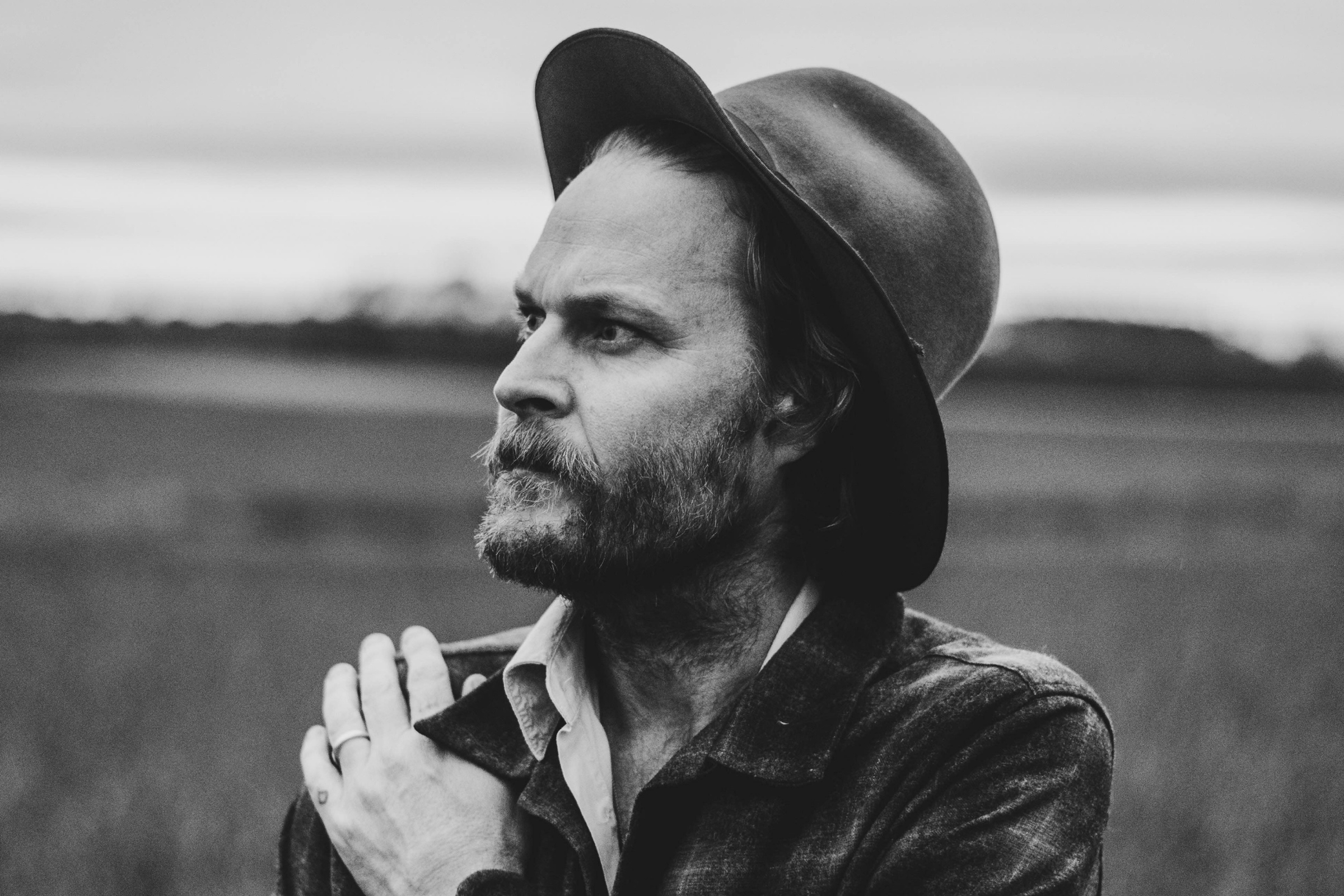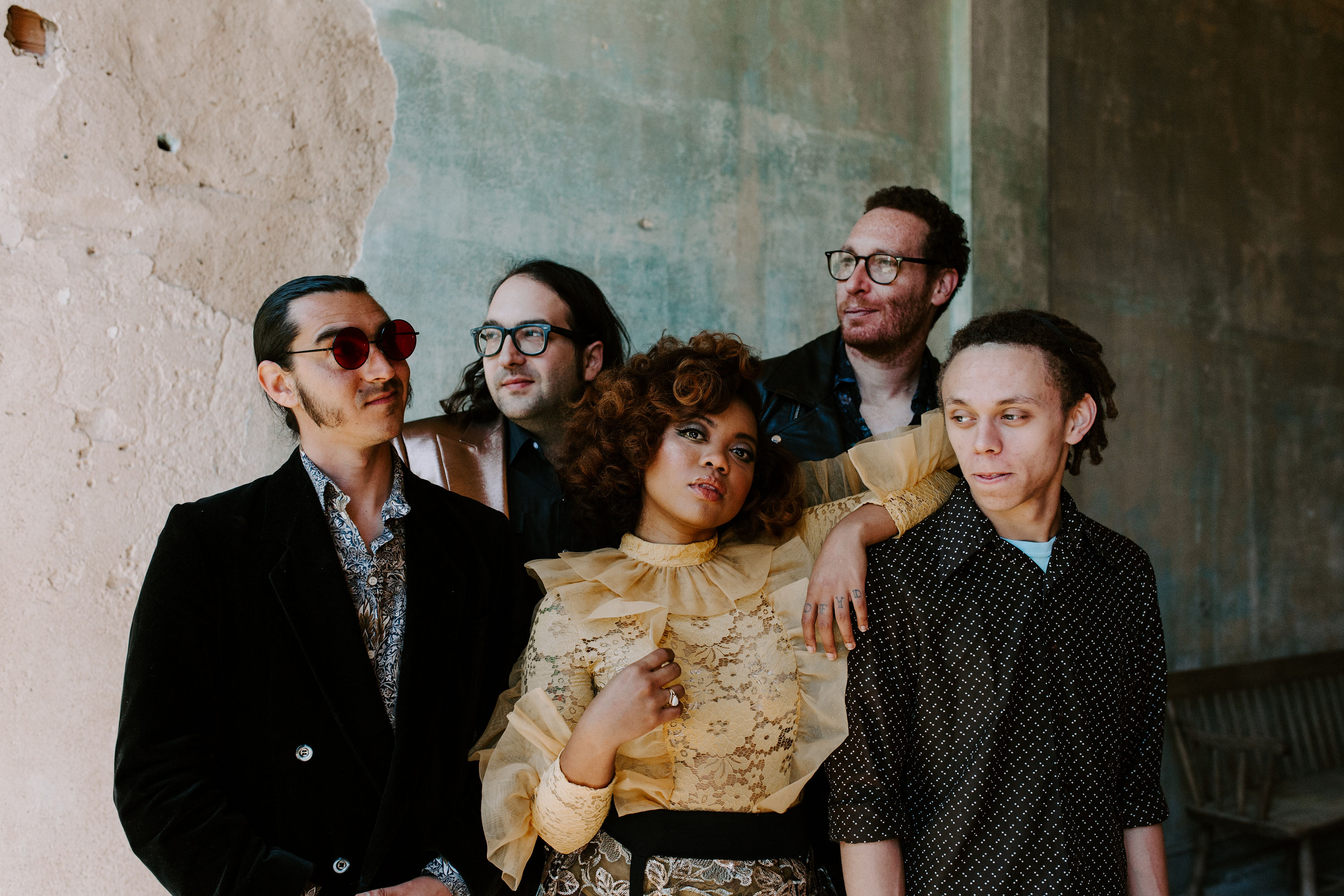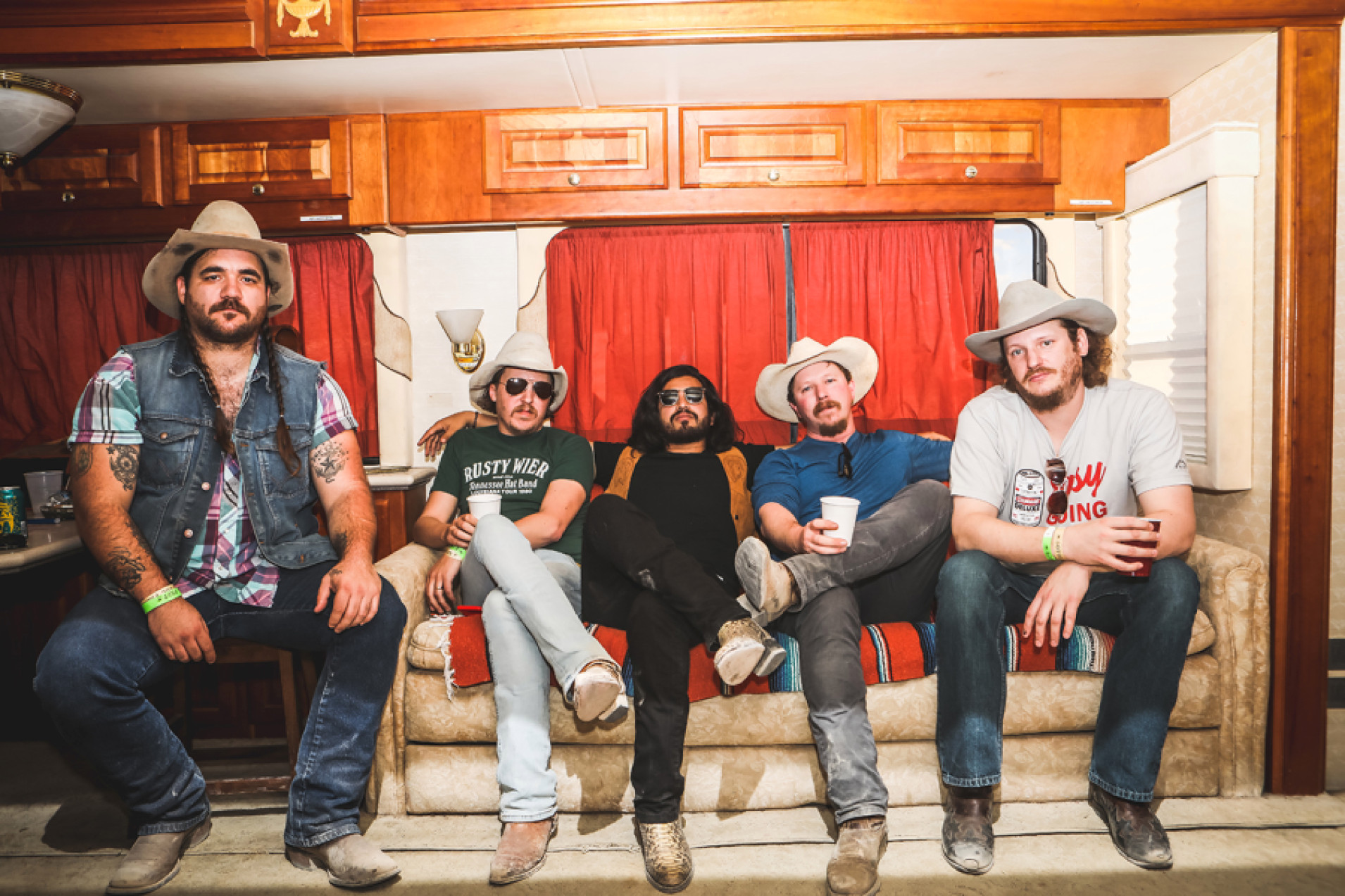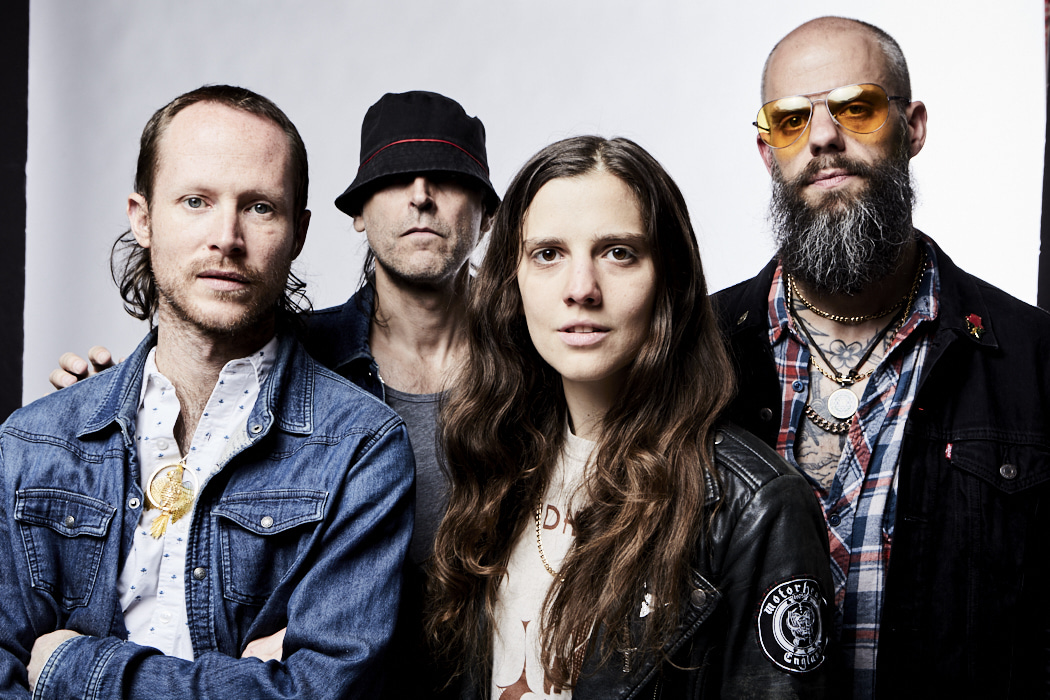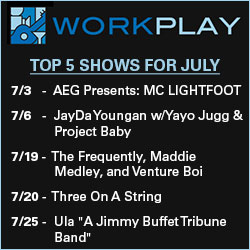John Paul White brings “Countrypolitan” to Birmingham on Saturday
John Paul White looked to many of his heroes when he sat down to write The Hurting Kind, the follow-up to 2016’s Beulah. Opry legends like Bill Anderson. Guys like Bobby Braddock, who notably co-wrote the George Jones classic “He Stopped Loving Her Today,” Tammy Wynette’s “D-I-V-O-R-C-E” and the 2009 Billy Currington hit “People Are Crazy.” White knew that he wanted to make a country record, and he knew that if he challenged himself by writing alongside some of the best, he would quickly learn if his aim was on target.
The record was recorded at White’s own Sun Drop Sound and released on his own Single Lock Records earlier this year. It was co-produced by Ben Tanner, and it features a notable cast that includes David Hood on bass, Lillie Mae on fiddle and guest vocals from Lee Ann Womack, Erin Rae and The Secret Sisters.
Birmingham is the ninth stop on the most exhaustive tour that White has set out on in quite some time. He’ll be on the road through July with stops that include the Grand Ole Opry and the Woody Guthrie Folk Festival. Before making his way to the Lyric Theatre, the “Muscle Shoals” native talked about the people that he called and asked to do co-writes, the ones that turned him down, Florence’s Single Lock Records and how “the Shoals” has evolved over the past two decades.
You’ve been playing a couple of these at shows the past couple of years. It seems like you were extremely deliberate in releasing this one. Is that accurate? Did you wait a little longer this time than you may have before?
It’s true. I told my team that I would give them, not only whatever energy they needed, but time, too. I think we put “My Dreams Have All Come True” out into the world back in November – maybe late October – to give people a taste of what the record was going to be like; so people didn’t get whiplash when the record came out; so that they could get a sense of what was going on. The record was done in spring or summer, but I wanted to make sure that we had a good, ample amount of time to ramp it up; to promote it before it got out into the world. So, yeah, it’s been a slower process than Beulah was; Beulah just fell out and got recorded and got released in pretty quick succession once the creative thing started up again. This one was a slower, more deliberate rollout. I don’t know that I’d do it that way again. I think it’ll be a case-by-case situation. But this one felt like there was so much arrangement and nuance and backstory; it was a more complex, adult record, and I think it just need a little more time to properly serve it.
Why was now the time that you felt more comfortable leaning back into the country thing?
This was the first time that I’ve made a record where I just sat down with a blank page in front of me and said, “What do you want to say? What do you sound like? Who are you?” That kind of thing. With The Long Goodbye that I did back in the 2000s, I had written for Nashville for about ten years at that point – eight years, I guess – and I just took all my best songs and made it into a record. I’m proud of that record, but I didn’t sit down and say, “Okay, let’s write a record.” It was all songs I had already written. And with the Civil Wars, everything was 50-50 collaborative; you give and take. It’s not 100% your vision, and that’s how it’s supposed to be. With Beulah, it just fell out in one fell swoop. I just caught it, and once the wheels started turning, I tried to stay out of its way. This is the first record that I sat down and didn’t really have an agenda or anything; I just wanted to make a record that I had been looking for. I listened to a ton of that “Countrypolitan” Nashville sound stuff; always have. My dad beat me up with it when I was a kid. But also, like, Orbison, which kind of bridges the gap between the pop world and the country world. I knew that I couldn’t find any records out there that sounded like that in a modern setting. I thought, “If that’s what you’re looking for; if that’s what you’re craving, then maybe that’s what you’re meant to create.”
When I decided that, I started dipping my toe into the water. I already had a song with “I’ve Been Over This Before” from Beulah where I had dabbled in that area; kind of indulged myself. Then “Yesterday’s Love,” which didn’t make Beulah, but made this record, I had already written it, too. I was already tending to move that way as a songwriter anyway. I set up co-writes with people like “Whisperin'” Bill Anderson and Bobby Braddock and Whitey Shafer to see if they would give me a thumbs up that I was on the right path. I think I would have a good sense of that if they looked at me like I was just a pretender or a poser; somebody that thinks they know country music. I would have gotten a sense of it, and I probably would have backed off, to be honest. But they were very encouraging and very supportive. They set the tone for the rest of the record.
When you pulled out the Rolodex, why were those the guys that you looked to for co-writes and looked toward for guidance?
Bill and Bobby, in particular, were still in the game; still writing songs and still getting action. That was the first two people because I knew they were still doing it. Then people like Whitey Shafer and Waylon Holyfield and Sonny Throckmorton – people like that – they weren’t. So I thought, “I want to meet these guys. I want to sit at their knee and get some stories out of them, and maybe I can talk them into writing a song.” Some of them did; some of them didn’t. Waylon Holyfield just told me, “Man, I love what you’re doing and I totally get it and if I had met you ten years ago, we would do this thing, but I think I’ve written my last song.” We talked a lot about that; about that realization. It was really good for me to hear it. I worry – I wonder – is that going to happen? Will I make it over the wall at some point and be like Bob McDill and those guys that just decide, “You know? I’ve said what I want to say.” I’m not there yet. But it was fascinating to hear that perspective, but also to hear Bill Anderson say, “I have no idea how to cut this off. I can’t retire. I can’t stop. The songs beat their way out of me and I love doing it.”
I’m glad I met who I met, because it’s going to shape me as a songwriter from now on.
Is Single Lock part of what puts your own work on hold? Feeling compelled to lead other artists and put their music into the world?
I get way too much credit for Single Lock’s success. The lion’s share of the success of anything that has happened at Single Lock has been the artists, and it always is. Labels love to take credit for a lot of stuff that artists do. People like Reed Watson and Haley Webster and Addy Kimbrell – and of course Ben Tanner and Will Trapp – they do the lion’s share of the work, and it’s a shame that I get the lion’s share of the credit. It’s always “John Paul White’s label Single Lock Records.” And I am a partner and I definitely do my share; I’m not saying I don’t have anything to do with it. But it’s a labor of love for a lot of folks.
Getting into doing the Single Lock thing was terrifying to me, to be honest. At that moment, I didn’t want to do anything. I didn’t want to do anything at all. I wasn’t sure I wanted to do anything creative either. When they approached me about – gave me the sell – I was on the fence. And they played me a little bit of St. Paul & the Broken Bones, and that pushed me over the edge. I couldn’t articulate it. If they had played me something else – maybe anything else – I don’t know if I’d even be involved. But for some reason, that opened the door. It checked off a box. I felt something when I heard it. Not only did I feel like I got it and knew what they were doing; that I understood what they were doing; there was this thing that ignited inside me where I thought, “Not only do I want to help these guys, but I feel like I can. I feel like I have contacts and some life experience now that I feel like I can be valuable to these guys and help them with what they do.” That was a new feeling for me, because I’d always just been a selfish, self-indulgent artist up until that point. The timing of it couldn’t have been better.
There’s an ongoing conversation within Nashville circles about mainstream country radio and women. You guys had a good 4-5 album run from a ton of amazing female artists. Was that something that you set out to do? Or was that an accident?
There was definitely no aim to it. It’d be silly for us to say that. We all want to practice what we preach; that everyone should be given their due. At the end of the day, these were the best records out there, and these were artists that were making the best music out there. We jumped on board with both feet. When we looked up, we realized – I think we did have a conversation at one point – our first record we put out was The Bear, which is Amber Murray, who’s a fantastic singer-songwriter, but other than that, it had been mostly guys. We didn’t really want to make decisions based on that other than – the crazy thing is, right now, women are making the best music in the world. Hands down. Almost all music I listen to now is female; whether it be indie-pop or Americana or rock and roll; to me, it’s just dominated by women. And it is with my kids, too. My 16-year-old son, who’s a metalhead, all he wants to listen to now is Phoebe Bridgers and Julien Baker and Big Thief and stuff like that.
I just think it’s a natural thing that we’re working with so many women because they’re making the best music.
In recent years, you’ve recorded some songs on other records with folks you admire like Rodney Crowell and Rosanne Cash. How did those collaborations happen?
I had known Rosanne for a little while from the Civil Wars days. We just knew each other, but had never done anything. She reached out to me to sing on her The River & The Thread record because it had a lot to do with the South. The very first song on the record talks about “I’m going down to Florence/Gonna wear a pretty dress” talking about Natalie Chanin [Alabama Chanin] and her connection with her. So it made a lot of sense for us to collaborate at that point.
With Rodney, New West [Records] reached out to me about being involved and singing on that record. I had only met Rodney one time. So I didn’t really know him. It was on a red carpet or something like that. I just jumped in with both feet. When I got there, he reminded me that we had met at the Grammys. And I don’t recall that; still to this day, I don’t recall it. He said that when the Civil Wars were getting ready to walk up on the stage to play, he said he was standing right there by the stage. He said, “I could tell that you could cut the tension with a knife, so I just made a joke like, ‘Hey let me hold that guitar for you.'” He said, “You looked over at me and just kind of smiled and then went up onstage and played. “And I said, “I don’t remember that. At all.” And I freaked out. If I had had any self-awareness, I would have freaked out, because I was such a fan of his. And we had a big laugh about that. When I walked in to do that session, I didn’t know I was going to be singing the choruses; I just thought I was going to be singing harmony on something. When they made me such a big part of that song, it was incredibly flattering. I’m glad I didn’t have much time to think about it, because I probably would have thrown up.
How important is it to you to continue doing this from Florence and for Florence? Over the past decade or so, you’ve become a fabric of that community.
I don’t ever really think about, “I need to do this for Florence” at any point. Or that, “We’ve got to hold on to the legacy” or anything like that. I think a lot of people do that around here, and I really respect it. I understand it. But I’m really always about the future when it comes to that. Everything that I could possibly need is here. Not only family, not only cost of living and a town in a geographic area that I dig, but the people here, the musicians here, the studios, the songwriters – it’s really easy, and almost selfish. There’s no reason I would ever need to leave, much less want to leave. We have a common group of people around here that feel the same. As our bond gets stronger, Florence gets stronger. As we all link arms together and do things, it benefits each of us individually as much as it does the common good. It’s a cycle. It’s a snake eating its own tail. Everything we do helps everybody else here. I don’t think there’s one big, altruistic thing where we’re all singing “Kumbaya” and we think that we’ve all got to do this for our hometown. I think everybody just has their nose to the grindstone and has realized – because of the internet – that there’s no reason to leave. And actually, there’s so many reasons you should stay here; keep things affordable and to be surrounded by people that don’t feel like they are in the rat race of Nashville or New York or L.A. We can relax and take things at our own pace and create quality work.
Is it difficult to be insulated within a tiny, artistic community of about 50-100 people in Florence that share similar ideals, while being immediately surrounded by “the rest of Alabama?” Is that frustrating sometimes?
Yeah. It can be.
I mean, I grew up in Rogersville. And Rogersville was a much different place than downtown Florence.
It wasn’t that long ago. When I started going to college in the 90s, man, I don’t even recognize this town [now]. I’m older than you are, but it’s come a long way in the past 10-15 years. I think this town has just decided – and I think the documentary helped people become proud of where they’re from, but also realize that you don’t have to be somewhere else to make your hay. Rick [Hall] showed that you could back in the 50s and 60s, so there’s absolutely no reason that you can’t now. I think we are all very proud of this place. We namecheck it a lot. We go around the world and we say we’re from “Muscle Shoals” when we aren’t really. And it’s because we’re all very proud of this Shoals thing. It’s basically “hashtag Shoals.” It’s everywhere from Loretto [the Tennessee community where White was raised] down to Russellville over to Waterloo over to Rogersville, Center Star and Elgin; out that way. It’s all the Shoals to me. There’s been eras when we were prouder of that than we should have been. We namechecked it more than we should have when we should have spent a lot more time creating new work and new things to be proud of and building blocks for the future for other musicians that are following along behind us. But I think we’re coming around.
How did we transition from being a session town into being a touring musician town and a writing town?
The 80s, 90s. The 80s was probably the last era when there were country records getting cut down here, like Earl Thomas Conley. Some Alabama stuff. Shenandoah. Mac McAnally. Walt Aldridge. Gary Baker. Those guys were all writing tons of great stuff here. So it started becoming more of a publishing town. People didn’t go other places to make records anymore. When the Stones came down here, they wanted to be isolated. They wanted to immerse themselves in a place where the records came from that they grew up listening to; but they also wanted to get away from the world. The Shoals was a perfect place for that. At some point, that’s not what labels, that’s not what A&R guys, that’s not what artists wanted anymore. You didn’t have Jerry Wexler sending all of his artists down here because he loved the product that was being sent back to him. It didn’t work that way anymore. So places like FAME and Muscle Shoals Sound started getting tumbleweeds.
The 90s came along and people like the [Drive-By] Truckers had to leave town to make their hay.
There were enough of us – with [Jason] Isbell, and Gary Nichols and James LeBlanc coming to town and myself and the [Secret] Sisters and Dylan LeBlanc – there were enough people around that we decided, “You know, all of that legacy, all of that studio culture, that ain’t doing [expletive] for me. It’s not putting food on my table. It’s not helping me in any way. I’m proud of those guys. I love that legacy and I love David Hood and Spooner Oldham and Jimmy Johnson. That’s my Mount Rushmore. But that ain’t doing me any good as an artist in my own body of work.”
And we all just kind of looked at each other and said, “We’ve got to put up or we’ve got to shut up. We’ve got to take this thing by the horns and do it ourselves and not wait for somebody else to do it.” That’s when things started changing.
John Paul White comes to The Lyric Theatre on Saturday, May 18. Single Lock’s latest signees, The Prescriptions, open the show. Doors are at 7 p.m., and the show begins at 8 p.m. Limited seats remain and begin at $20.



